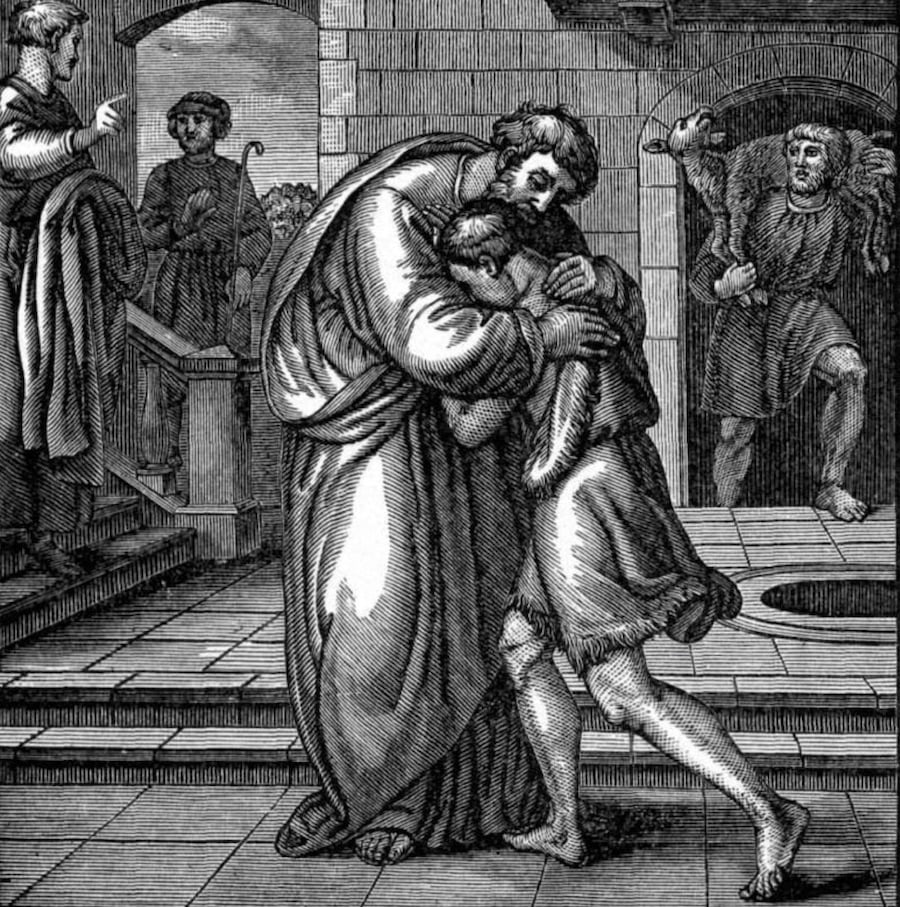DIVINE MERCY
One of the most recent feasts, introduced into the liturgy only in the year 2000 – the Fest of Divine Mercy, immediately gained popularity, showing that people of today search for and are in need of more than the world can offer. Far away from having just something on sale here (if not entirely for free and coming at no cost), the fest and the concept of divine mercy is challenging, but also very rewarding.
Especially our experience with the current pandemic leaves us with profound questions: the world is at once powerful and weak, capable of doing what is noble and what is base, disposed to freedom and slavery, progress and decline, brotherhood and hatred. How to make the good gain the upper hand? How to make mercy dominate the world?
Mercy in the full sense can only exist in the life transformed by the mystery of Christ. While people strive to present better versions of themselves, only Christ gives a definitive answer to our quest and to the world’s need for mercy. Therefore, every Sunday (which is the Easter of the week) and in fact, every celebration of the Eucharist makes present the love of Christ for us and challenges us to live the same love for the neighbor: blessed be merciful, for they shall obtain mercy (Matt 5:7).
Mercy means giving more than what is required by justice. The prodigal son only asks for what he deserves (justice): Father, I have sinned against heaven and against you. I no longer deserve to be called your son; treat me as you would treat one of your hired workers (Luke 15:18-19). In the father’s response, love is transferred into mercy by going beyond the precise norm of justice: he ran to his son, embraced him and kissed him…bring the finest robe and put it on him; put a ring on his finger and sandals on his feet (Luke 15:20-22). The father gives more (mercy) than the son would deserve (justice).
The cross of Christ is a supreme revelation of justice and mercy.
- justice (the due is given to sin and death): justice is done to sin at the price of Christ’s sacrifice, of His obedience “even to death.” He who was without sin, “God made him sin for our sake”. Death has justice done to it at the price of the death of the one who was without sin.
- mercy (much more is given to people): the cross of Christ is also a radical revelation of mercy that goes against the very root of evil in the history of man: against sin and death.
The cross is not an accident in the life of Jesus to be corrected and nullified. The cross fulfills the messianic program of Christ: the revelation of merciful love for the poor, the suffering and prisoners, for the blind, the oppressed, and sinners. These and many more profit. But divine mercy is more than a gift given for free. It is a challenge that becomes rewarding only once taken seriously. It is a whole lifestyle, an essential and continuous characteristic of the Christian vocation: Blessed be merciful, for they shall obtain mercy (Matt 5:7).
While we often think of the Divine mercy as a free gift from God to us, there is a major cost involved: giving up one’s laziness, comfort, standards, making a step towards the neighbor, turning one’s cheek, treating the people not based on justice, but on mercy (give more than is required by justice)… it is a lot to ask from us, the selfish and spoiled people of the modern times. Therefore God feeds and strengthens us constantly, every time we unite ourselves with him. We are reminded of our obligation to be merciful once a year (on the Sunday of Divine Mercy), but fortunately we are fed daily so that we can bring divine mercy into practice.


